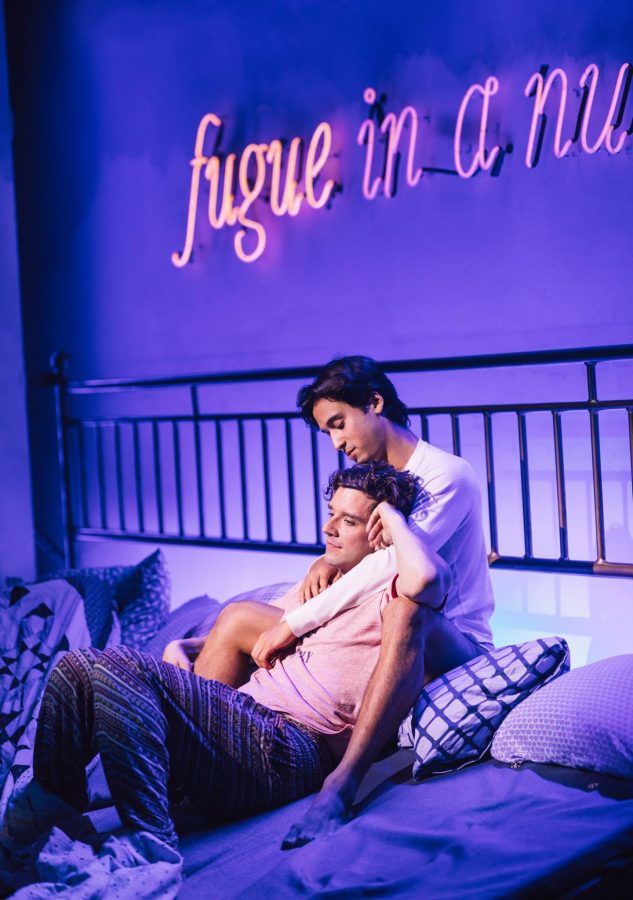“Torch Song” has a timeless quality and llatches tight onto its audience, refusing to let go. Harvey Fierstein originally wrote the play as three separate pieces that were performed at La Mama from 1978 to 1979. The three premiered together as the “Torch Song Trilogy” off-Broadway in 1981 and in 1982, transferred to Broadway and became a smash hit. Even with recent strides by the LGBTQ community to earn universal acceptance and respect, “Torch Song” still feels as powerful and impactful as ever.
“Torch Song,” an abbreviated version of the trilogy presented as a single work, tells the story of Arnold Beckoff, a gay man living in New York City in the 1970s who earns his living as a drag queen. Arnold simply wants to find love and create a family of his own but is constantly reminded that the world is pitted against him. In the climatic final act of the play, Arnold realizes that, in the face of trials and tribulations, all he wants is respect and happiness.
Director Moisés Kaufman flawlessly portray the life of Arnold onstage, balancing the fine line between comedy and drama. One moment, the audience is laughing as Arnold navigates the backroom at a bar and has sex in the pitch black. The next, the audience is on the verge of tears as Arnold realizes that he was nothing more than an object to his lover.
“Torch Song” teaches the audience that it is okay to experience both laughter and tears. It illustrates the rollercoaster ride that love and life can be. Arnold is not an emotionally stagnant character throughout the play. He faces a spectrum of emotional states from the highest highs to the lowest lows. Fierstein created a character that is more real than fictional, allowing the audience to truly empathize with him.
Arnold is not the only fully formed character. The entire cast of “Torch Song” form an ensemble deserving of a standing ovation. Jack DiFalco, Ward Horton, Roxanne Hope Radja and Michael Hsu Rosen breathe life into their characters. Whether it be through the pain expressed by Radja finding out that her husband still loves his male lover or the restrained outpourings of love from DiFalco, they figures in a colorful portrait of life.
Mercedes Ruehl as Ma appears only in Act Two, but she leaves an indelible mark. She delicately balances a deep love for her son Arnold with an alienated distance due to his homosexuality. She has the audience laughing — and then immediately gasping at her degradation of her own son.
Standing out above all is Michael Urie as Arnold. His performance is both utterly hilarious and heartbreaking, but his opening monologue sets the tone for the entire play. He effortlessly cracks the audience up, explaining the different types of men in his life and the ones to avoid. Then, he transforms almost instantaneously into a vulnerable being in complete drag, explaining in sign language that he has loved before but never enough.
“Torch Song” is now running at The Hayes Theater at 240 W. 44th St. through Feb. 24, 2019.
Email Matt Markowski at [email protected].






















































































































































